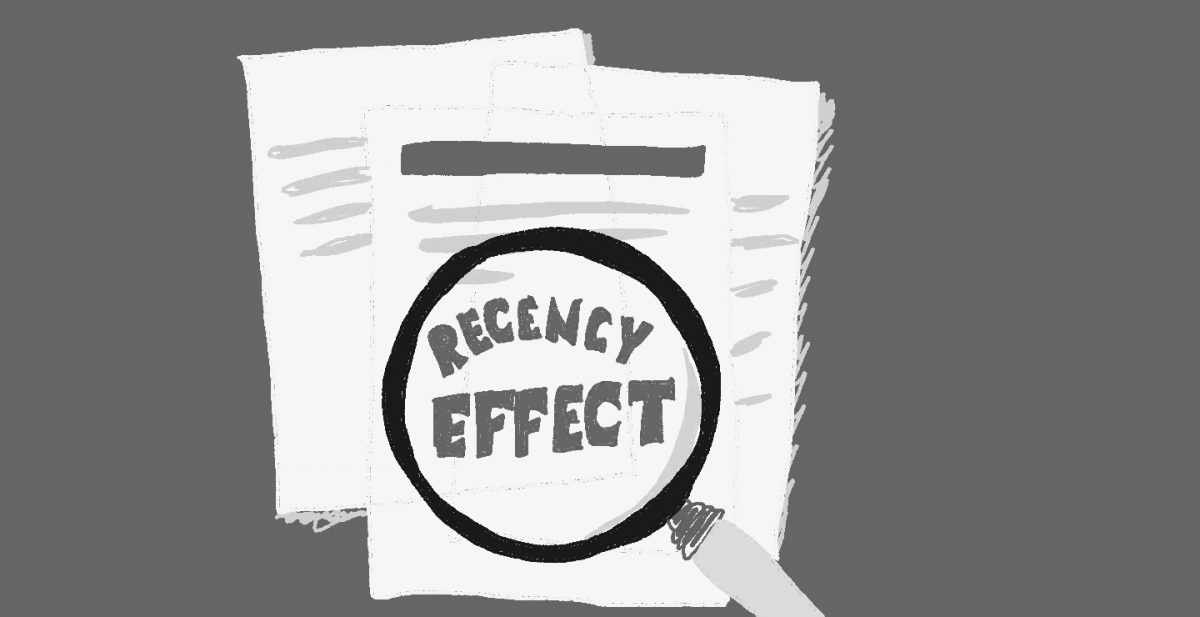Introduction
In the realm of decision-making, our minds are susceptible to various biases and cognitive shortcuts that can influence our choices. One such mental model is the Recency effect, which refers to our tendency to give greater weight and importance to the most recent information or experiences when making decisions. This phenomenon is deeply rooted in human psychology and manifests itself in our day-to-day lives, often leading to irrational decisions that may not align with our best interests. In this comprehensive blog post, we will explore the concept of the Recency effect, its prevalence in decision-making, examples of its occurrence in various contexts, underlying biases, strategies to identify and overcome it, and the implications of active avoidance.
Understanding the Recency Effect
The Recency effect is based on the way our brains process and remember information. Our minds have a natural inclination to remember and assign more significance to the most recent events or pieces of information. When making decisions, this bias leads us to place disproportionate emphasis on recent experiences, observations, or data, while downplaying or disregarding earlier information or trends.
Examples of the Recency Effect
- Personal Life Decisions: Imagine you are considering purchasing a new smartphone. You have conducted thorough research on different brands, models, and their features. However, when you visit a store, the salesperson introduces you to a newly launched model with advanced specifications. The appeal and novelty of the latest smartphone capture your attention, causing you to prioritize its features over your initial research. As a result, you may end up making a hasty decision based solely on the recency of the encounter, without considering other factors such as long-term performance, durability, or compatibility with your needs.
- Business Scenarios: The Recency effect can significantly impact business decision-making. For instance, a company’s management team may base their strategic plans and resource allocation solely on the most recent financial quarter’s performance, disregarding historical trends and broader market dynamics. This short-sighted focus on recent results can lead to reactive decision-making, overlooking underlying patterns, potential risks, or opportunities for long-term growth. Consequently, the company may miss out on critical investments or fail to adapt to changing market conditions.
- Public Policy-Making: Governments and policymakers can also fall victim to the Recency effect. For example, when designing economic policies, policymakers might disproportionately rely on the most recent economic indicators or events, ignoring historical context or long-term trends. This narrow focus on recent data can result in knee-jerk policy responses that may not effectively address the underlying economic issues or consider the potential consequences on various sectors and stakeholders.
Mental Biases and Underlying Psychological Factors
The Recency effect is intertwined with several mental biases and psychological underpinnings that influence our decision-making process. One significant bias that contributes to the Recency effect is the Availability Heuristic. This heuristic involves our tendency to rely on readily available and easily accessible information when making judgments or decisions. As recent information is more accessible in our memory, we give it undue weight, leading to biased decision-making.
Another cognitive bias closely related to the Recency effect is the Peak-End rule. This rule suggests that people tend to evaluate an experience or event based on its most intense or memorable moments and its end rather than considering the experience as a whole. The Recency effect can amplify the impact of the Peak-End rule, as recent events have a more profound influence on our overall perception of an experience.
Identifying and Overcoming the Recency Effect
Recognizing when we are susceptible to the Recency effect is crucial for making more objective decisions. Here are some practical strategies to help identify and overcome this bias:
- Expand the Timeframe: Actively extend your timeframe for analysis and decision-making. Avoid basing decisions solely on recent information or events. Instead, consider historical data, trends, and a more comprehensive range of experiences to gain a broader perspective.
- Seek Diverse Perspectives: Engage in dialogue with individuals who have different viewpoints or experiences. By actively seeking out diverse opinions, you can challenge your own biases and gain a more balanced understanding of the situation.
- Conduct Thorough Research: Invest time in conducting thorough research and gathering a wide range of information before making decisions. Rely on trusted sources and consider multiple data points and perspectives to reduce the impact of the Recency effect.
- Utilize Decision Frameworks: Employ decision-making frameworks or checklists to ensure a systematic and comprehensive evaluation of different factors. By using structured approaches, you can minimize the influence of recent information and make more well-rounded decisions.
Conclusion
The Recency effect is a pervasive cognitive bias that affects our decision-making process. By understanding its influence and the biases and psychological factors that contribute to it, we can develop strategies to mitigate its impact. The examples provided in this blog post demonstrate how individuals and groups often make irrational decisions by falling prey to the Recency effect in personal, business, and public policy contexts. By expanding our timeframe, seeking diverse perspectives, conducting thorough research, and utilizing decision frameworks, we can make more objective and informed decisions. Ultimately, cultivating awareness of the Recency effect and actively avoiding its influence can lead to more effective decision-making, yielding favorable outcomes in various aspects of our lives.
